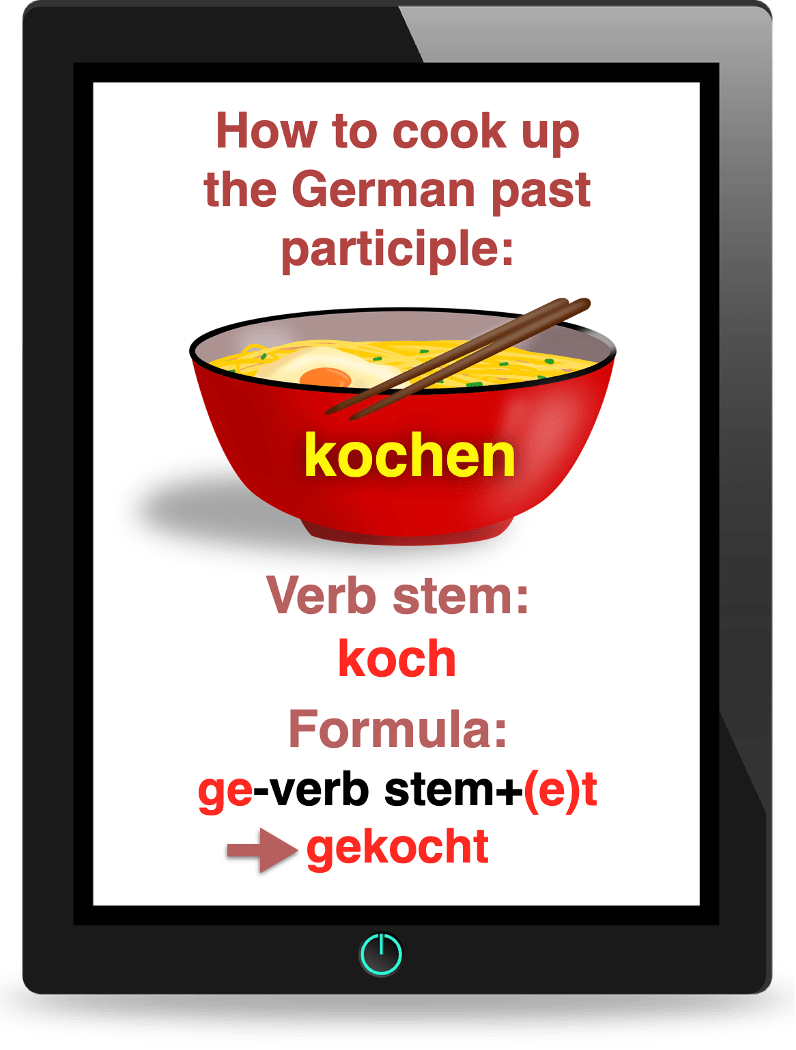Question 1 of 3
 Question 1: Deducing the Regular German Past Participle - Part 1
Question 1: Deducing the Regular German Past Participle - Part 1 • Start with the infinitive of the verb, which almost always ends with -en. Take this ending off.
• You will be left with the verb stem. For example, the verb stem of "machen" is "mach".
• Add ge- before the stem and -t after it. So the past participle of "wohnen" looks like this: ge|wohn|t --> gewohnt
• This is the basic formula: ge + verb stem + t
• NOTE: Verb stems that end in t or d require an -et to be placed on the end. The formula is amended to
ge + verb stem + et. For instance, reden (to talk) becomes geredet.
Can you complete the table below?
|
Deducing the German Past Participle
|
|
English
Infinitive
|
German Infinitive
|
German Past Participle
|
|
|
machen
|
|
|
to say
|
sagen
|
|
|
to ask, question
|
|
gefragt
|
|
to hear, listen
|
|
gehört
|
|
|
lachen
|
|
|
to talk
|
reden
|
|